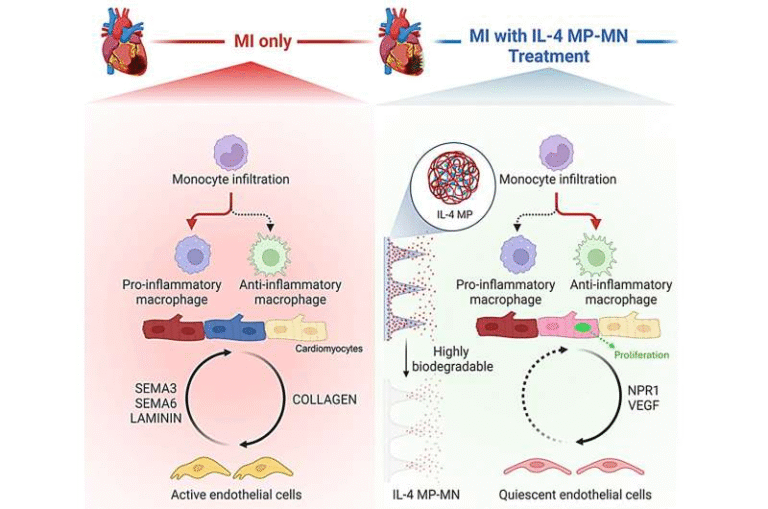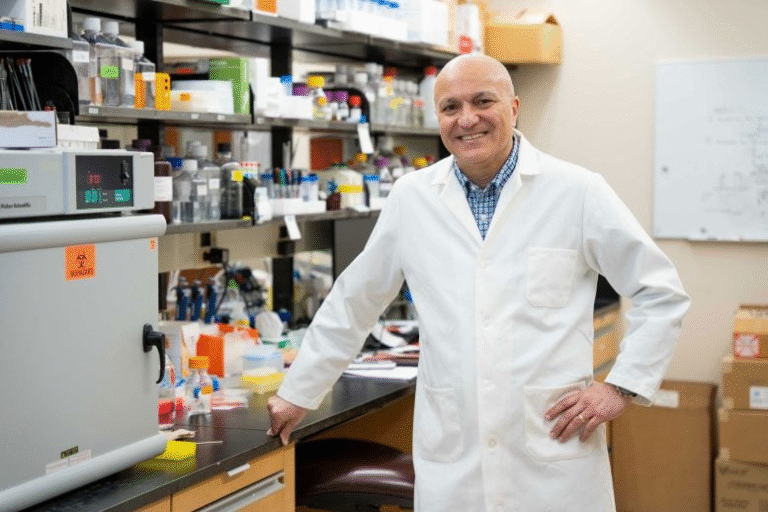Purpose in Life Tied to Lower Dementia Risk – UC Davis Study Explains How

A new study from UC Davis has found that having a strong sense of purpose in life is linked to a 28% lower risk of developing cognitive impairment, including conditions like mild cognitive impairment and dementia. This research, published in The American Journal of Geriatric Psychiatry, followed more than 13,000 adults aged 45 and older over a period of up to 15 years.
The results add weight to the idea that psychological well-being, not just physical health, plays a vital role in how we age. Let’s go through the study in detail, look at its findings, and also explore why purpose might matter so much for the brain.
The Study: Who, How, and What Was Measured
The research drew on participants from the Health and Retirement Study (HRS), a large, nationally representative survey in the U.S. funded by the National Institute on Aging. All participants included in this analysis had normal cognitive function at the beginning of the study.
- Sample size: 13,765 adults, age 45 and up.
- Follow-up period: Median of about 8 years, with some tracked as long as 15 years.
- Main measure: Sense of purpose in life, or “PiL”.
- Tool used: A seven-item questionnaire from the Ryff Measures of Psychological Well-Being. Participants rated themselves on statements like “I have a sense of direction and purpose in my life” using a six-point scale from “strongly disagree” to “strongly agree.” Scores were averaged, producing a number from 1 to 6. Higher scores meant stronger purpose.
- Cognitive testing: A telephone-based cognitive test (mTICS, or modified Telephone Interview for Cognitive Status) was given every two years.
- Definition of impairment: Two consecutive rounds of below-threshold mTICS scores, consistent with mild cognitive impairment or dementia.
Researchers also factored in a variety of possible confounding influences, such as age, sex, race, education, depressive symptoms, and genetic risk factors like carrying the APOE ε4 gene, a well-known risk factor for Alzheimer’s disease.
What They Found
Out of the 13,765 participants, 1,820 developed cognitive impairment during the follow-up period. Here’s what the analysis showed:
- People with a higher sense of purpose were 28% less likely to develop cognitive impairment compared to those with lower purpose.
- The effect was present across different racial and ethnic groups.
- The protective link remained significant even after adjusting for depression, education level, and APOE ε4 status.
- In terms of timing, people with more purpose experienced a delay of about 1.4 months in the onset of cognitive decline over an 8-year follow-up.
That delay might not sound dramatic at an individual level, but at the population level, it is meaningful—especially when compared to medications like lecanemab or donanemab, which can also modestly delay decline but carry high costs and risks.

Why Purpose May Protect the Brain
The researchers suggest that a strong sense of purpose helps the brain stay more resilient with age. Even for people genetically predisposed to Alzheimer’s, purpose was tied to a later onset of symptoms.
While the study did not ask participants about the specific activities that gave them purpose, earlier research on aging has highlighted several common sources of meaning:
- Relationships: Spending time with family, supporting friends, or caring for grandchildren.
- Work or volunteering: Continuing professional work, mentoring, or contributing to community causes.
- Spirituality and faith: Religious or spiritual involvement, participation in faith-based groups.
- Personal goals: Pursuing hobbies, learning new skills, or setting personal milestones.
- Helping others: Acts of kindness, caregiving, philanthropy, or community advocacy.
This broad range of activities suggests that purpose isn’t tied to one formula. Instead, it’s about feeling that life has direction, meaning, and value.
Methods and Limitations
The study has several strengths:
- Large, nationally representative sample.
- Long follow-up period (up to 15 years).
- Repeated cognitive testing every two years.
- Adjustment for major confounders, including depression and genetic risk.
But like all observational research, there are limitations:
- Causation is not proven: While purpose is linked to better outcomes, it’s possible that healthier people are more likely to feel purposeful, rather than purpose directly causing the protection.
- Measured only once: Purpose in life was assessed only at baseline. People’s sense of meaning could change during the years of follow-up.
- Modest delay: The average delay in decline (about 1.4 months) is statistically significant but small.
- Testing method: Cognitive health was measured via telephone interviews, which are reliable but less precise than full clinical assessments.
- Racial subgroup differences: The association was clear among White and Black participants, but less consistent for Hispanic participants when genetic risk was included in the models. This may reflect smaller sample sizes.
Why This Matters
Despite these caveats, the findings add to a growing body of research showing that psychological well-being is not just a nice bonus—it’s central to healthy aging.
Most strategies to fight dementia focus on risk factors like blood pressure, diabetes, physical activity, or diet. While those are crucial, this study suggests that mental and emotional health—specifically purpose—belongs on that list as well.
The appeal of purpose as a protective factor is that it’s accessible, safe, and cost-free. Unlike drugs, it carries no medical risks. And unlike some lifestyle changes, it doesn’t require major resources. It’s about cultivating meaning through relationships, personal growth, spirituality, or service.
A Closer Look: Purpose and the Brain
The exact biological pathways linking purpose to brain health aren’t fully clear, but scientists have proposed several possibilities:
- Stress buffering: A sense of meaning may help reduce harmful stress responses, protecting brain structures like the hippocampus.
- Health behaviors: People with purpose may be more likely to exercise, eat well, and engage in mentally stimulating activities.
- Social connection: Purpose often involves relationships, and social interaction itself is protective against cognitive decline.
- Neuroplasticity: Having goals and staying mentally engaged may help the brain build cognitive reserve, giving it more resilience against disease.
This aligns with findings from Blue Zones—regions of the world where people often live to very old ages. In these communities, purpose (often called “ikigai” in Japan or “plan de vida” in Costa Rica) is considered a key ingredient of longevity.
Beyond Dementia: Broader Benefits of Purpose
Purpose in life doesn’t just affect the brain. Past studies have linked it to a wide range of health outcomes:
- Lower mortality risk: People with stronger purpose tend to live longer.
- Better cardiovascular health: Purpose has been associated with lower risk of heart attacks and strokes.
- Improved mental health: A clear sense of meaning is tied to lower rates of depression and anxiety.
- Physical function: Older adults with higher purpose often maintain mobility and independence longer.
This makes purpose a kind of multi-benefit protective factor—one that cuts across physical, psychological, and social health.
Can Purpose Be Cultivated?
One of the most promising aspects of this research is that purpose isn’t fixed. Unlike genetic risk factors, it can be nurtured and built.
Some practical ways people find and strengthen purpose include:
- Reflecting on values and goals, and aligning daily activities with them.
- Staying engaged in hobbies or learning new skills.
- Building and maintaining supportive relationships.
- Volunteering or contributing to causes larger than oneself.
- Practicing gratitude and mindfulness to stay connected with what feels meaningful.
There’s also growing interest in purpose-building interventions, such as structured group programs, counseling, or community-based activities designed to help people explore and commit to meaningful goals.
Final Thoughts
The UC Davis study adds another piece to the puzzle of healthy aging. While medications to delay dementia remain limited in effectiveness and often costly, purpose in life stands out as a low-risk, widely accessible factor that can support brain health.
It may not prevent dementia entirely, and the measured delays in decline are modest. But considering that purpose also benefits mental health, physical health, and longevity, it’s a factor well worth cultivating at any age.
For individuals, the takeaway is simple: nurturing a sense of direction, meaning, and value in daily life may help keep the mind sharp and resilient with age. For society, the findings suggest that fostering purpose through community programs, education, and support systems could play an important role in public health.
Research Paper: Life Purpose Lowers Risk for Cognitive Impairment in a United States Population-Based Cohort





